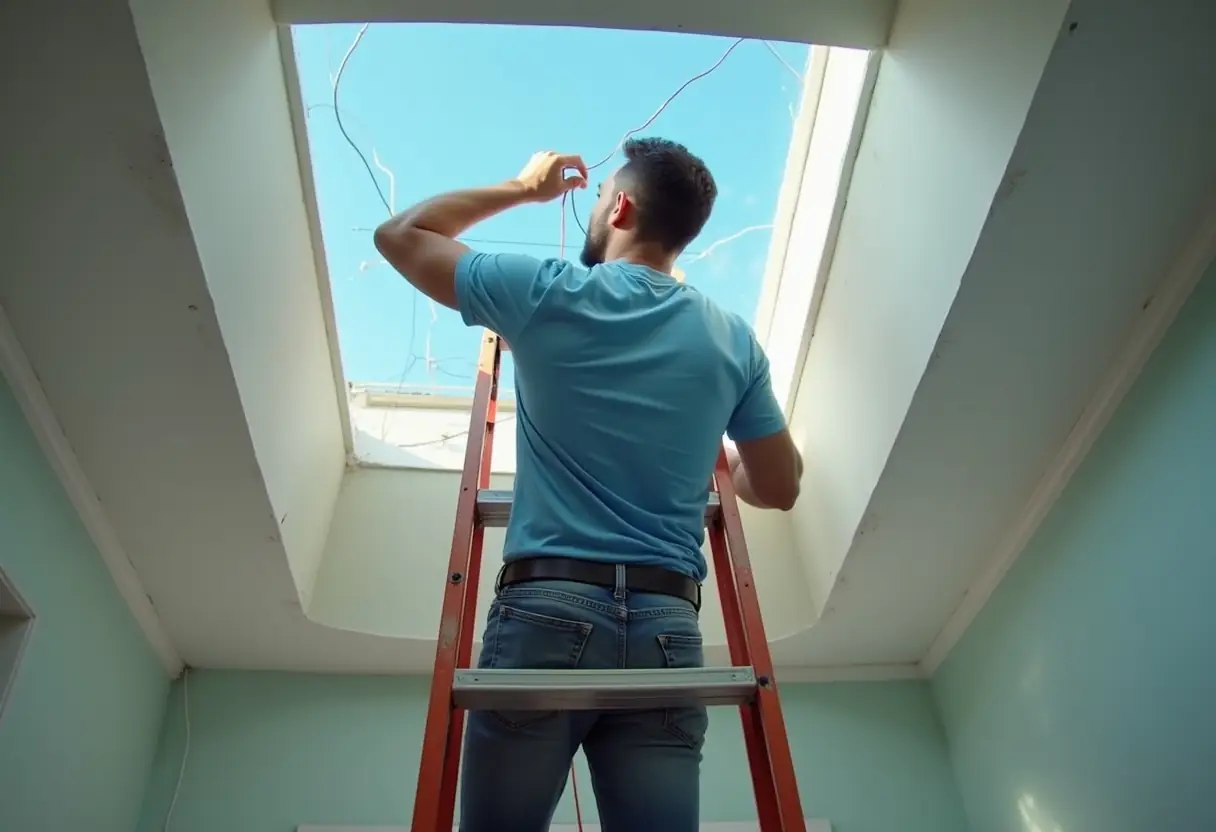Rewiring a house may not be the most glamorous home improvement project – there’s no instant “wow” factor like a new kitchen or bathroom – but it’s one of the most important investments you can make in the safety, functionality, and future value of your property.
Whether you’re renovating an older home, planning an extension, or just suspect your electrics might be outdated, this guide will walk you through everything you need to know about house rewiring in the UK – including warning signs, benefits, costs, and what to expect from the process.
Why Rewiring Matters
Your home’s electrical system is like its nervous system. It powers everything from lighting and heating to appliances and broadband. But unlike other parts of your home, you can’t see what’s going on behind the walls – and over time, age and wear can lead to serious safety risks.
Old or faulty wiring can result in:
Electric shocks
Power outages
Blown fuses or tripped breakers
Overheating sockets
Electrical fires
According to government statistics, around 15% of all domestic fires in the UK are caused by faulty wiring. That’s why staying on top of your home’s electrics is not just smart – it’s essential.
When Should You Rewire a House?
Not all homes need a full rewire, but certain signs and scenarios should prompt a closer look:
1. The Property is Over 30 Years Old
If your home hasn’t been rewired in the last 25–30 years, it’s likely due for an upgrade. Old installations often lack the capacity and safety features needed for modern living.
2. You Have Old-Style Fuse Boxes
If your home still has a traditional fuse box (with ceramic fuses) rather than a modern consumer unit with RCD protection, it’s a strong indicator that your electrics are outdated.
3. Frequent Electrical Problems
Do you experience:
Flickering lights?
Tripping circuits?
Buzzing sockets?
Hot plug points?
These are warning signs that something isn’t right – and could mean your wiring is unsafe.
4. You’re Renovating or Extending
Major renovations are the perfect time to rewire, especially if you’re upgrading the kitchen, adding new circuits, or increasing the electrical load. It’s much more cost-effective and efficient to do everything at once.
5. You’re Buying or Selling a Home
An Electrical Installation Condition Report (EICR) is often recommended before property transactions. If the report flags significant issues, rewiring may be advised to meet current safety standards.
What’s Involved In A House Rewire?
A full rewire is a major undertaking, but it brings peace of mind. Here’s a step-by-step look at the process:
1. Initial Inspection & Planning
A qualified electrician will inspect your existing wiring, assess your needs, and plan the new layout – including sockets, switches, lighting, and smart home features if desired.
2. First Fix (Before Plastering & Decorating)
This is the disruptive part. Floorboards are lifted, walls may be chased, and new cables are run throughout the home. Consumer units, switches, and socket boxes are installed.
3. Second Fix (After Plastering)
Once walls and floors are restored, the electrician returns to connect sockets, switches, light fittings and test the system.
4. Testing & Certification
A full test is carried out to ensure everything is safe, working correctly, and compliant with current regulations. You’ll receive a certificate for your records and insurance.
How Long Does It Take?
The time required depends on the size and complexity of the property. As a rough guide:
1-bedroom flat: 3–5 days
3-bedroom house: 5–10 days
Larger homes or complex rewires: 2–3 weeks
You may need to move out temporarily, especially if the property is occupied. At Bedford Electrician, we work with minimal disruption and can schedule work around your routine as much as possible.
How Much Does It Cost to Rewire a House in the UK?
Costs vary based on property size, layout, location, and spec. As a general estimate:
Small flat: £2,500–£4,000
3-bed semi-detached: £4,500–£6,500
Large detached home: £6,500+
Prices can increase if you want extras like:
USB plug sockets
LED lighting systems
Outdoor sockets or security lighting
Smart home wiring (e.g. for Nest, Ring or Hive)
At Bedford Electrician, we provide clear, no-obligation quotes with no hidden charges – so you know exactly what to expect.
Benefits of Upgrading Your Electrics
Beyond compliance and safety, rewiring offers a host of other advantages:
✔ Future-Proofing Your Home
Modern households rely on far more devices than 20 years ago. A rewire ensures your system can handle modern demands without constant tripping or overloads.
✔ Improved Energy Efficiency
Upgraded systems and energy-efficient lighting (such as LEDs) can lower your electricity usage and reduce bills.
✔ Increased Property Value
A modern electrical system is a huge selling point. Buyers are more likely to be interested – and mortgage lenders may require proof of electrical safety.
✔ Better Layout and Convenience
More strategically placed sockets, better lighting, and modern switchgear can vastly improve the usability and comfort of your home.


Why Choose Bedford Electrician?
We’re not just experts in electrics – we’re trusted partners for homeowners across Bedfordshire.
Fully qualified, NICEIC-registered electricians
Honest advice and transparent pricing
Respectful, tidy work with minimal disruption
5-star customer service and ongoing support
Whether it’s a full rewire, partial upgrade, or you just want a second opinion, we’re here to help you make your home safer, smarter, and future-ready.
Ready To Rewire?
If your home’s electrics are past their best, don’t leave it to chance. A safe, modern electrical system is the backbone of any well-functioning home – and it starts with expert advice.
📞 Call Bedford Electrician on 01234 413357
📧 Email us at chris@bedfordelectrician.com
💻 Or visit https://bedfordelectrician.com/contact-us/ to book your free consultation
Read More Blogs




